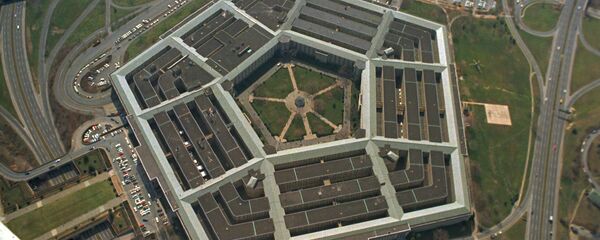Ernst & Young, one of the largest accounting firms in the US, reportedly found that $465 million worth of construction projects from fiscal year 2016 was missing and an additional $384 million for "in progress" construction projects lacked sufficient documentation.
Another $100 million in computer system assets was missing, along with $46 million more "inappropriately recorded" computer system assets. This all adds up to close to a billion dollars worth of spending that is insufficiently accounted for, if at all.
The lack of a paper trail raises questions as to just what this money was spent on and how many more untold millions or billions of Pentagon spending is unaccounted for. "If you can't follow the money, you aren't going to be able to do an audit," said Sen. Chuck Grassley (R-IA), one of the champions of the Department of Defense (DoD) audit, to Politico.
"I think the odds of a successful DoD audit down the road are zero. The feeder systems can't provide data. They are doomed to failure before they ever get started."
DLA Director Lt. Gen. Darrell Williams issued a statement in response to Politico's findings in which he said that the audit has "provided us with a valuable independent view of our current financial operations."
"We are committed to resolving the material weaknesses and strengthening internal controls around DLA's operations," he wrote in the statement.
The DLA handles the logistics of procurement for the US military, coordinating the storage, distribution and transportation of supplies such as weapons, fuel, medical supplies, clothing, et cetera. The agency also leads the delivery of humanitarian supplies to disaster-stricken parts of the world.
With a budget of $40 billion per year, the DLA employs more than 25,000 people and processes in excess of 100,000 procurement requests a day.
It is among the first of the 35 agencies and field activities that comprise the civilian army of the DoD to be audited. Other organizations under this umbrella include the Defense Intelligence Agency (DIA), National Security Agency (NSA) and Defense Advanced Research Projects Agency (DARPA).
Williams added that the DLA is the "first of its size and complexity in the Department of Defense to undergo an audit, so we did not anticipate achieving a 'clean' audit opinion in the initial cycles."
"The key is to use auditor feedback to focus our remediation efforts and corrective action plans and maximize the value from the audits. That's what we're doing now," the DLA statement said.
At the end of 2017, the first ever audit of the DoD in its 70-year history began. A whopping 2,400 auditors have been given the daunting task of inspecting an agency with a 2018 annual budget of more than $700 billion, assets valued at roughly $2.4 trillion and 2.9 million employees spread out across hundreds of offices.
The DoD has been compelled since 1990 to release their finances to Congress each fiscal year, but have repeatedly ducked that law — much to the chagrin of government accountability groups. In December 2016, the Washington Post claimed to have acquired an internal Pentagon document pointing to a breathtaking $125 billion in administrative waste in the DoD. The document was reportedly buried until The Post uncovered it.
The US' military spending is by far the greatest in the world, larger than the other nine biggest militaries combined. Spending has continuously increased under recent American presidents and has rarely dipped above 5 percent of US gross domestic product since the end of the Cold War.






